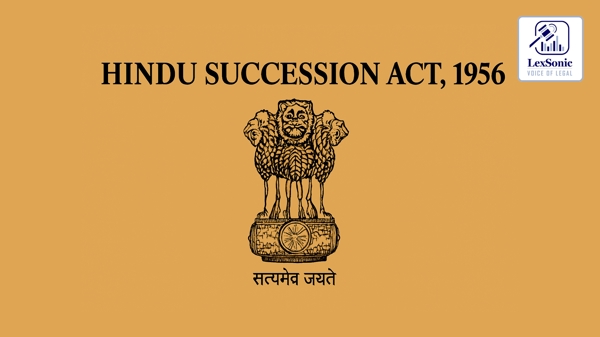In a case that highlights the legal intricacies of property succession and maintenance rights, the Supreme Court of India recently dismissed an appeal challenging the findings of the High Court of Andhra Pradesh. The judgment, delivered on 26th March 2009, upheld the decisions of the Subordinate Judge, Ramachandrapuram, which had concluded that the property in question should be divided between the plaintiff and defendant in accordance with a partition deed, not on the basis of an alleged Will executed by a deceased family member.
Factual Background:
The dispute arose between two branches of the same family—step-brothers—concerning the succession of family property. The appellant-defendant (represented by legal representatives) was the son of Kallakuri Swamy from his second wife, while the respondent-plaintiffs were his sons from his first wife. The subject property, comprising a total of 3.55 acres of land spread across multiple survey numbers, had been assigned to Kallakuri Swamy’s second wife, Smt. Veerabhadramma, under a partition deed executed in 1933. This deed stipulated that Smt. Veerabhadramma had the right to enjoy the property during her lifetime, with the understanding that after her death, the property would be divided equally between the two branches of the family.
Upon her death in 1973, the respondent-plaintiffs sought partition of the property, asserting their right to an equal share. The appellant-defendant, however, argued that Smt. Veerabhadramma had bequeathed the property to one of the defendants through a Will dated 30th December 1968. The respondents contested this claim, asserting that the property was merely given to her for life, and her rights under the partition deed were not absolute.
Legal Issues and Court's Findings:
The main legal issue in the case revolved around the interpretation of the Hindu Succession Act, 1956, particularly Section 14, which deals with the ownership rights of female Hindus over property given in lieu of maintenance.
Section 14(1) of the Hindu Succession Act states that any property possessed by a female Hindu, whether acquired before or after the commencement of the Act, will be held by her as an absolute owner. The section applies to property acquired by a female Hindu in a variety of ways, including inheritance, partition, gift, or in lieu of maintenance. Section 14(2), however, provides an exception where property is acquired through a written instrument (e.g., a Will) or a court order that prescribes a restricted estate in the property.
The appellant-defendants contended that Smt. Veerabhadramma’s rights over the property should be governed by Section 14(1), arguing that she had absolute ownership rights over the land. On the other hand, the respondent-plaintiffs argued that the property was provided to Smt. Veerabhadramma solely for her maintenance, and thus, Section 14(2) of the Act should apply, meaning she did not have the right to bequeath it.
The courts below, including the High Court and the Subordinate Judge, sided with the respondents, concluding that Smt. Veerabhadramma had only a life interest in the property, as provided by the partition deed. They found that the property in question was given to her for the purpose of maintenance, and her rights did not extend beyond that limited interest. The Trial Court further noted that Smt. Veerabhadramma’s rights did not expand into absolute ownership under Section 14(1) because the property was provided to her in recognition of a pre-existing right to maintenance, as opposed to creating a new right.
Judicial Precedents:
The legal principles involved were elucidated in several landmark cases, such as V. Tulsamma v. V. Sesha Reddy, which clarified the relationship between maintenance rights and property ownership. The Supreme Court in this case observed that a Hindu female’s right to maintenance is not a mere formality but a substantive right based on her spiritual and moral relationship with her husband. This right to maintenance is sufficient to transform the property given to her into her absolute property, provided it is in lieu of maintenance and not granted to her for some other purpose.
Further, in cases like Gulwant Kaur v. Mohinder Singh and Jaswant Kaur v. Harpal Singh, the Court reaffirmed that property provided to a female Hindu for maintenance becomes her absolute property under Section 14(1), while property granted under a Will or a document prescribing a restricted estate would fall under Section 14(2).
Court’s Decision and Conclusion:
The Supreme Court, after reviewing the facts and legal principles, upheld the concurrent findings of the lower courts. It concluded that the property in question was given to Smt. Veerabhadramma for the purpose of maintenance, and therefore, under Section 14(2), she had only a life interest in the 3.55 acres of land. The remaining property, where she was granted absolute ownership (2.09 acres), was unaffected by this ruling.
The appellant-defendants' plea to extend absolute ownership to all of Smt. Veerabhadramma’s property under Section 14(1) was rejected. The Court found no compelling reason to overturn the lower courts' findings that the partition deed had provided Smt. Veerabhadramma only a life interest in the disputed land.
Thus, the appeal was dismissed, reinforcing the legal distinction between property rights granted in lieu of maintenance and those granted under a Will or other legal instrument, as prescribed under the Hindu Succession Act, 1956.
Significance of the Case:
This case underscores the importance of understanding the interplay between maintenance rights and property ownership under the Hindu Succession Act. It affirms that a female Hindu’s right to property given for maintenance does not automatically confer absolute ownership, unless the property was granted to her without restrictions. Additionally, the case highlights the importance of clear documentation in matters of inheritance and property succession.
For anyone dealing with similar family property disputes, this case serves as a reminder of the importance of the legal framework surrounding property rights, particularly with respect to maintenance, inheritance, and the application of the Hindu Succession Act.
Section 14, Hindu Succession Act - 1956
Hindu Succession Act, 1956

